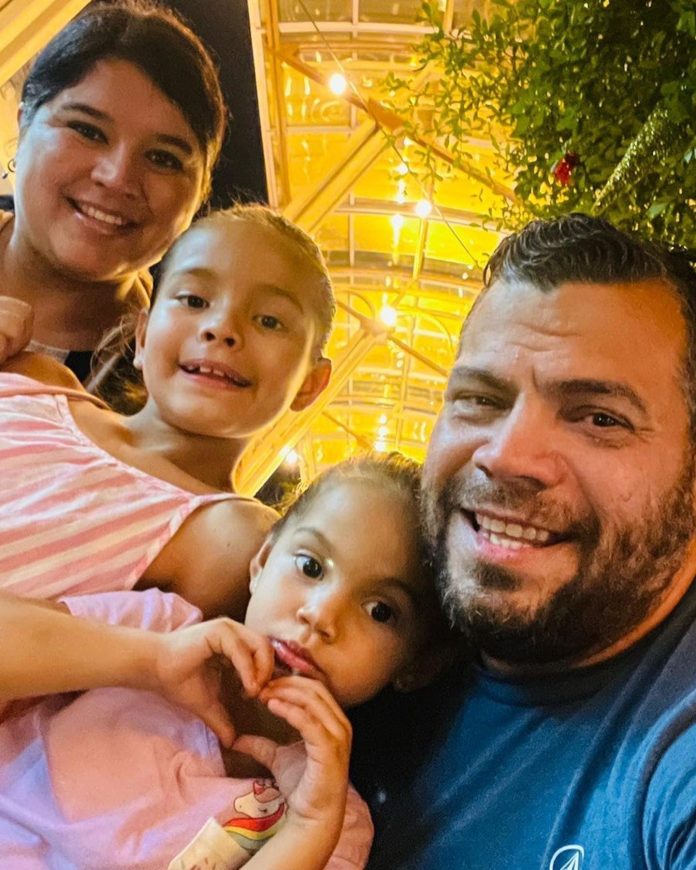There is support available for those who need help, but it is also essential to give and receive moral and emotional support from colleagues and the community. That is the opinion of Maurits ‘Junior’ Rivero (43), duty officer at the Department of Ambulance IMSAN, who these days has support for his colleagues, particularly after the traumatic accident at Sero Colorado that shook the community. And even though many focus on the victims, Junior and the staff at IMSAN had and have the personnel who responded to the accident in mind.
Junior Rivero has 11 years of service in Ambulance, a division of the Medical Center San Nicolas, IMSAN. A nurse who from a young age already knew that one day he would work with the Ambulance Service. He always felt an affinity to giving assistance. The young man who was brought up with Scouting in Aruba became a volunteer for the youth wing of the Red Cross. At 14 years old he already knew his interest was in EMS – Emergency Medical Service. The next step was to study nursing to then specialize in the Netherlands. The transition from the Red Cross to nursing and then to ambulance was organic and was not a surprise for Rivero. Perhaps this also explained why many of those working in the ambulance service nowadays are also people who have volunteering experience.
Working as a nurse comes with challenges and is heavy, not leaving out the emotional toll. But a worker at the ambulance service is not only a nurse or assistant. The ambulance service worker is the one that has to make difficult decisions. The medical manager declares the nurse and assistant of the ambulance competent and authorized, based on the specialized preparation of the Ambulance Academy.
“You make the decision to give a medicine, to transport a person or not, deliberate with the general practitioner. There are times when you have to even make the decision to stop treatment on a patient. These are difficult decisions because the ambulance worker always wants to give his all.”
Reality of life is that despite giving the best care, the right medicine at the best time, do the perfect intubation, sometimes nonetheless the result is not always what is desired. “That is the hardest part to deal with. You have the thought of wanting to save everyone, and that can’t always be the case.”
Even though accidents attract the most attention, the Department of Ambulance at IMSAN gives varied assistance. Accidents are less than 25 percent of all the cases to which they respond, which includes people with heart problems, trauma, diabetics and people with cancer that oftentimes is terminal.
But what can be noted is that more and more in the geriatric community there is a need for assistance of the Ambulance Service. Not necessarily for physical emergencies. Many are neglected and need attention, sometimes a simple greeting. “Sadly, oftentimes these people just need attention.” Rivero explained that the core business of the Ambulance Service is really emergency care, but “the humanitarian aspect is also a large part of the work”.
COVID
Ambulance personnel went through a revolution because of Covid-19. “It was a situation for which we were not prepared. Around the world no one knew what was awaiting us. The preparation as such took longer and we realized that in certain cases we were taking even too much precaution.” The change however is that “there came more empathy for the patient and also that the ambulance worker needs to be better prepare. We are sharper when approaching the patient. We need to make sure that the protection wall is firm and tall, so that when we are treating the patient we provide the best care but we also ensure the protection of the ambulance worker.”
Sero Colorado
Rivero had the “piket leiding” of ambulance on the first Sunday of October and was leading the team who responded to the fatal traffic accident that left many victims behind. “It is a relatively young team, but a very dynamic one that showed professionalism during those moments. I am immensely proud of the team, of each of them who gave their best.”
However, it must not be forgotten that these are people who each day need to deal and live with the experience. “It will stay with them for a long time. It’s not easy, but we have support for them.”
Ambulance has a BOT team – Company Care Team – where each colleague including duty officers like Junior make the first approach, checks and asks the workers how they’re doing. He also communicates with Human Resources so that together with management they can ensure professional help, psychologically if necessary. Rivero is happy with the way IMSAN is ensuring this support that is not only for the ambulance workers but for all the personnel of the institution.
Rivero shares what he learned himself through facing traumatic situations with his colleagues. “You need to talk about the case. It is important to remember that you have a family at home. Some of us have children, and I cannot imagine that you bring this weight home, because it’s not fair for the family. But family is a great support because they know what you go through as an ambulance worker. You need to talk, express, write down your thoughts. But at the same time it is important to distract the mind, exercise, in order to deal with these heavy emotions.” Rivero says that it is important to act right away to avoid falling into a spiral.
“The tipping point for falling in a negative spiral is very small. I have experienced this with colleagues, when I was working outside of Aruba, that when they fall in the negative spiral, they cannot get back out. And it’s a shame because these are professionals with such a huge knowledge, but because they couldn’t face the trauma, left the job. This is what we as IMSAN are trying to avoid. The team of ambulance service is relatively young, they have many years ahead. We want them to stay with us.”
Family, friends and the community at large can help by simply being a support for the workers, listen to them (even though it can sound repetitive) and surely by giving them space for working. That is Junior Rivero’s message.

















